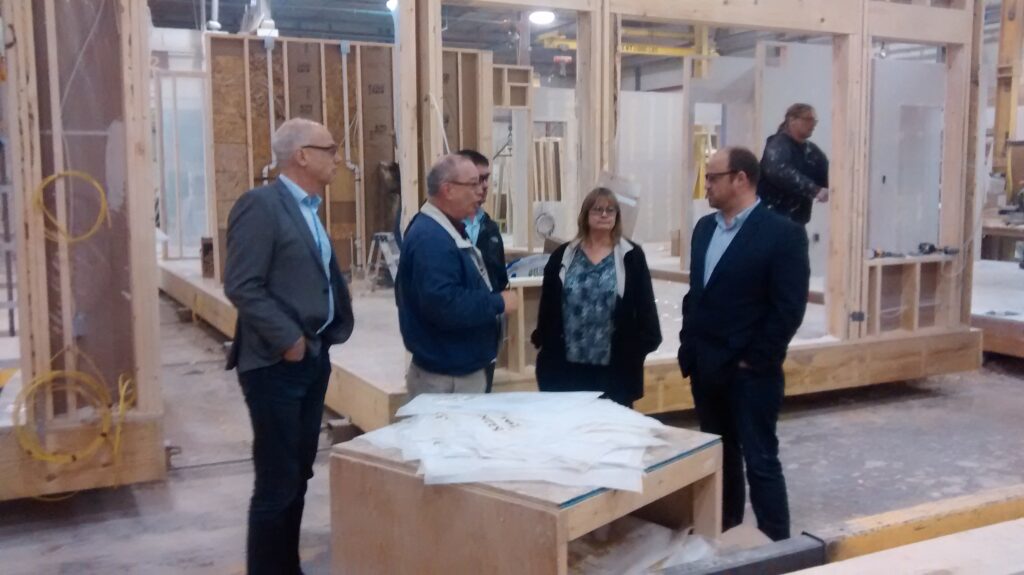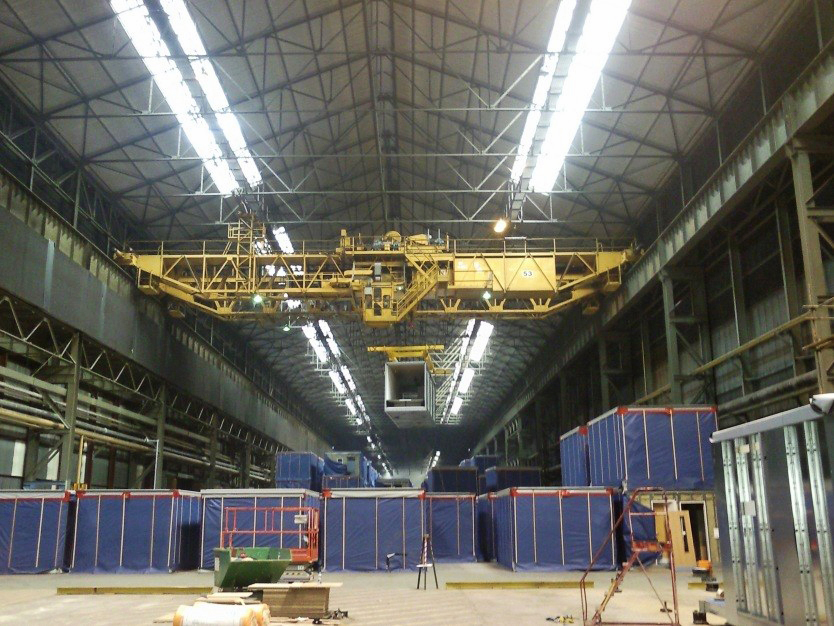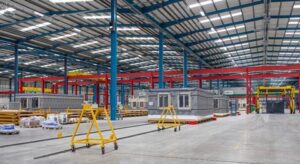by Gary Fleisher
To solve the affordable housing crisis, an increasing number of individuals—ranging from enthusiastic entrepreneurs to visionary engineers and developers—find themselves drawn to the modular housing sector. Despite their varied backgrounds, often with limited or no experience in modular housing, these pioneers share a common goal: to revolutionize the housing market through the efficiency, cost-effectiveness, and innovation of modular homes.

However, the journey from concept to successful factory operation is fraught with challenges that can easily derail the ambitions of even the most determined stakeholders. Let’s explore the complexities of launching a modular housing factory, identify the pitfalls that many newcomers face, and outline strategies for overcoming these obstacles to avoid failure and achieve success in this promising industry.
The Allure of Modular Housing
At its core, the appeal of modular housing lies in its promise to address several pressing issues facing today’s housing market: affordability, scalability, and sustainability. Modular homes, constructed in segments in a factory setting and then assembled on-site, offer a faster, less labor-intensive, and often cheaper alternative to traditional stick-built homes. This innovative approach has the potential to significantly reduce housing shortages and provide affordable options for countless families.
Common Pitfalls for New Modular Housing Factories
Lack of Market Understanding
One of the most significant challenges for new entrants in the modular housing sector is an inadequate grasp of the market dynamics. Many founders embark on their venture with a strong belief in the transformative potential of modular housing but without a detailed understanding of consumer demand, competitive landscape, or the specific needs of their target demographic. This gap in market insight can lead to misaligned product offerings, unrealistic pricing strategies, and ultimately, failure to secure a sustainable market position.

.
Regulatory and Logistical Hurdles
The path to launching a modular housing factory is strewn with regulatory and logistical hurdles. Securing the necessary approvals from state and local governments is a complex process that can vary significantly from one jurisdiction to another. Additionally, the logistics of financing, manufacturing, shipping, and assembling homes on-site require careful planning and execution. Without a solid grasp of these aspects, new factory initiatives can stall or collapse under the weight of unanticipated challenges.
Management and Experience Deficits
A common thread among struggling modular housing startups is the absence of experienced management teams. The intricacies of running a successful modular housing factory require expertise not only in manufacturing and construction but also in business operations, financial management, and regulatory compliance. New ventures often underestimate the value of this experience, leading to missteps that can be costly and difficult to recover from.
Strategies for Success
To navigate the complexities of establishing and operating a successful modular housing factory, a strategic, informed approach is essential. The following strategies can help new entrants avoid common pitfalls and lay the groundwork for long-term success in the modular housing industry.
Comprehensive Market Research
A deep understanding of the market is the foundation of any successful business venture. For modular housing factories, this means conducting thorough research to identify target customers, understand their preferences and needs, and assess the competitive landscape. This research should inform all aspects of the business plan, from product design and pricing to marketing and sales strategies.

.
Building the Right Team
The importance of assembling a knowledgeable and experienced management team cannot be overstressed. This team should possess a balanced mix of expertise in modular construction, factory operations, business management, and the regulatory landscape. Additionally, building relationships with industry experts, advisors, and mentors can provide invaluable guidance and insights.
Navigating Regulatory Landscapes
Understanding and navigating the regulatory requirements for modular housing production and installation is critical. This involves not only securing the necessary approvals and permits but also ensuring that designs meet or exceed building codes and standards. Engaging with regulatory bodies early and often can help identify potential issues before they become roadblocks.
Robust Planning and Execution
Successful modular housing factories rely on meticulous planning and efficient execution across all aspects of the business. This includes developing detailed business and operational plans, establishing clear processes for manufacturing and assembly, and implementing strict quality control measures. Financial planning, including securing adequate funding and managing cash flow, is also crucial to sustaining operations and supporting growth.
Embracing Innovation and Continuous Improvement
The modular housing industry is inherently innovative, but successful factory operations must also commit to continuous improvement. This means staying abreast of new technologies, materials, and construction methods that can enhance efficiency, reduce costs, and improve the quality of the homes produced. It also involves soliciting and acting on feedback from customers and industry partners to refine and improve products and processes.
Conclusion
The journey to establishing a successful modular housing factory is complex and challenging, but it is also ripe with opportunity for those who approach it with the right knowledge, strategy, and resources. By understanding the market, building a skilled team, navigating regulatory landscapes, planning meticulously, and embracing innovation, new entrants can overcome the common pitfalls and contribute to the growth and evolution of the modular housing industry. In doing so, they can play a pivotal role in addressing the affordable housing crisis, and transforming the way homes are built.
.
CLICK HERE TO READ THE MARCH ISSUE
.
Gary Fleisher is a renowned blogger and commentator on construction and housing trends, known for his insightful analysis of the industry.























